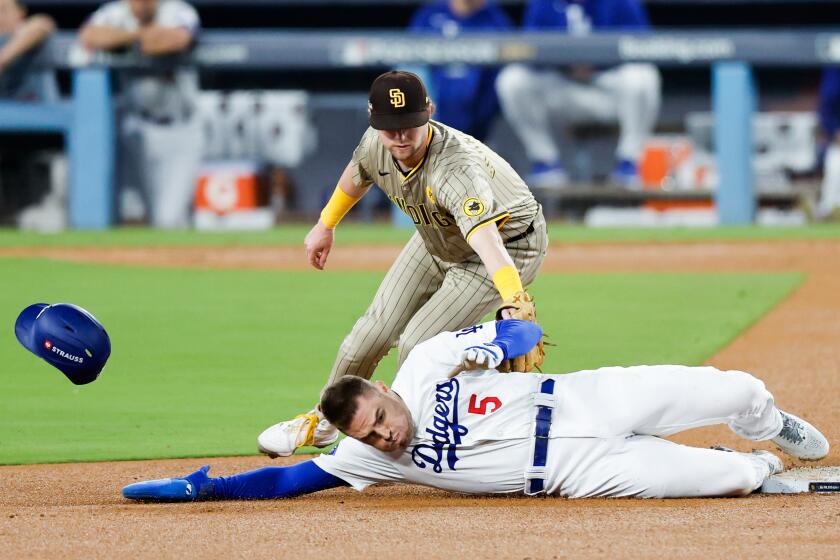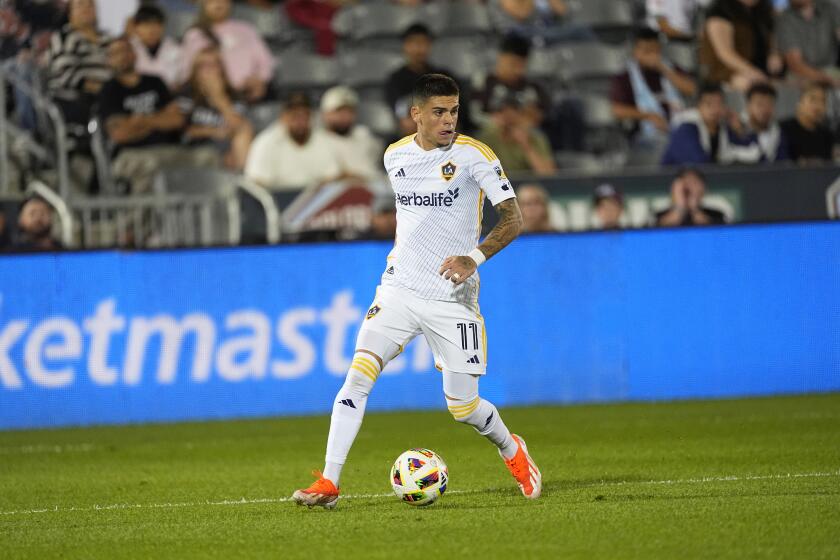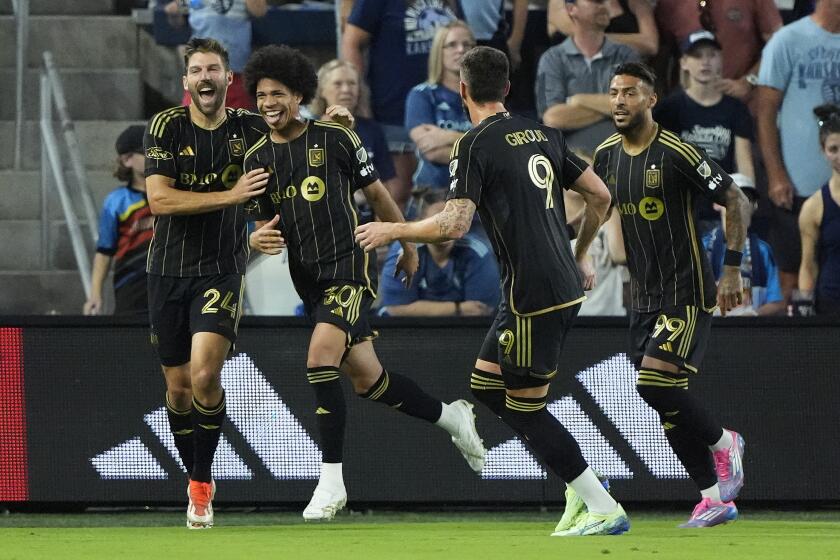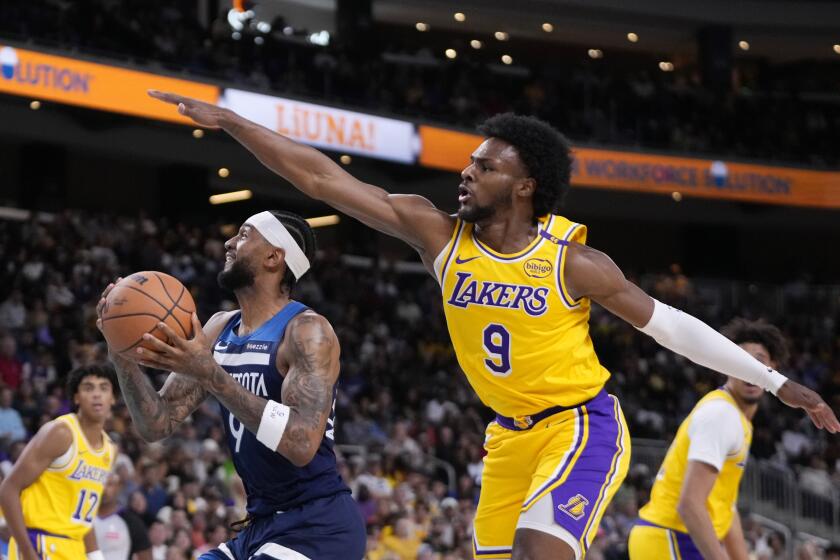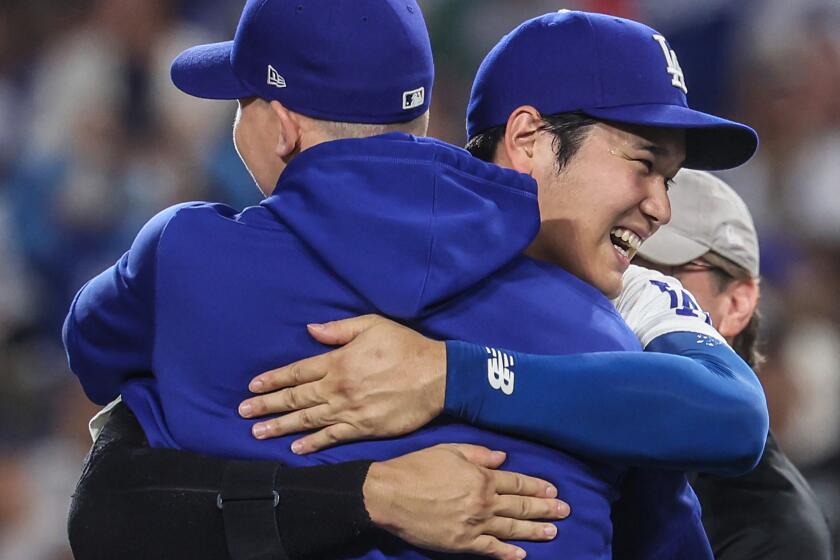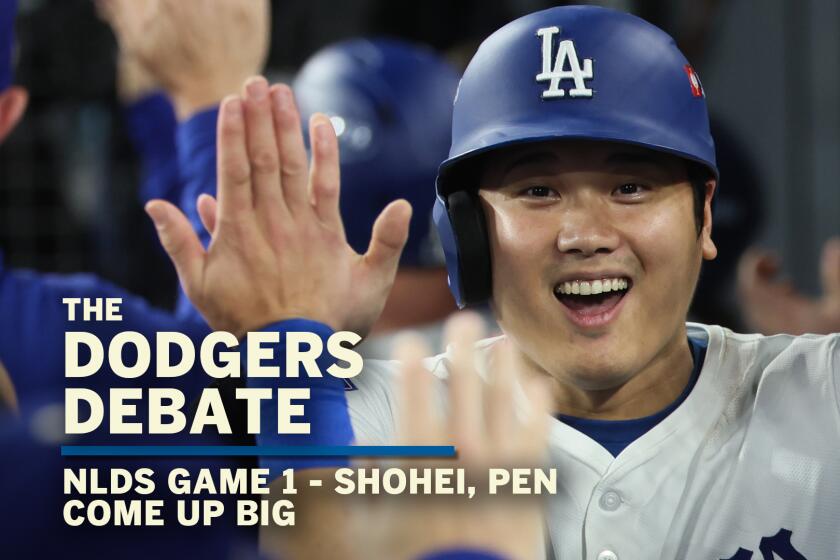Formula Works Only With a Great One
We pause a moment for thought and reflection on the international transaction whereby Raghib Ismail, doing business as the Rocket, signs to entertain for the Toronto Argonauts of the Canadian Football League.
The Rocket says he chooses Toronto because he likes the way its owner, Bruce McNall, treats people.
If McNall likes you, he gives you upward of $4.5 million a year.
Now that’s a nice way to treat people. If he wants to treat them nicer, he will give them upward of $9 million a year.
The village killjoy, though, arches an eyebrow, asking himself why McNall would give upward of $4.5 million a year to Ismail, who is not worth that sum.
If the truth were known, Ismail isn’t worth that even to Notre Dame, whence he fled after his junior year. Nor is his position clearly defined. Sometimes he is a flanker, sometimes a tailback.
At all times, he runs faster than most people, but he weighs only 175 pounds, not rated choice size in a pro.
It also may be noted that Canadian football is not the kind of operation set up to pay wages such as that proffered the Rocket.
The league there consists of eight teams. Only three--Toronto, Vancouver, Hamilton--are privately owned. The rest are bankrolled by their respective communities--namely, Calgary, Edmonton, Ottawa, Regina and Winnipeg.
One of the two largest cities in Canada, Montreal, isn’t even entered. Investors there have busted out.
Now we don’t want folks in Canada to work up a foam, accusing us of knocking their football. What they play is a good game.
But it is to football what triple-A is to baseball. It is what hockey would be in the United States if the teams employed mostly American players.
Canadians who know their sports acknowledge this. But for reasons of national pride, they don’t want NFL teams moving into their cities and displacing the Canadian Football League, which has shown a pulse since 1907.
Yet, football in Canada is less than a roaring success, proof of which is, McNall buys the whole Toronto franchise for just fractionally more than he pays the Rocket for a year.
The man who sells him the team, Harry Ornest, vice chairman of Hollywood Park, unloads it mainly because he runs out of strength.
He was making personal telephone calls to prospective buyers all over Toronto, trying to move Argonaut season tickets. He launched merchandising campaigns. He did everything short of approach strangers strolling down Yonge Street.
So what is McNall doing on this scene, tendering more money to Raghib Ismail than is paid Joe Montana? Or four times the wage of Marcus Allen?
You can accept one of two explanations. First, McNall is a visionary who makes a big score in the purchase of the hockey Kings and in the capturing of Wayne Gretzky, who instigates the big score of the Kings.
Dangling the Rocket as bait in Canada, McNall may see possibilities at the gate and in cable television.
The second explanation may suggest the poor man has contracted a malady known as publicity-itis, which can be terminal.
Reading about himself in newspapers, looking at pictures of himself on television, boss of Gretzky, the Babe Ruth of hockey, McNall may have fallen in love with the going. A lot of guys have.
McNall also has elevated himself socially by consorting with Gretzky, even selling him a piece of the Toronto football team, which may or may not be a favor.
And now McNall adds to his stable the Rocket.
From an entrepreneurial beginning equally modest, Donald J. Trump got his start, calling a news conference in front of the waterfall of Trump Tower on Fifth Avenue to announce the signing of Doug Flutie.
Flutie today plays for Vancouver. It would be nice if he would call a news conference in front of the waterfall of Trump Tower to announce a loan to Trump, who can use it.
In this scenario, meantime, the Raiders lurk, watching McNall frighten off drafters in the NFL. Calmly, on the fourth round, they take the rights to the Rocket; they wouldn’t pay him half what the Argonauts are paying, but they foster the notion he could be theirs by the time he is 22.
Since he is 21, that will give the Toronto owner just enough time to discover that what works with Gretzky works only with Gretzky, not with every guy walking down Broadway.
More to Read
Go beyond the scoreboard
Get the latest on L.A.'s teams in the daily Sports Report newsletter.
You may occasionally receive promotional content from the Los Angeles Times.



